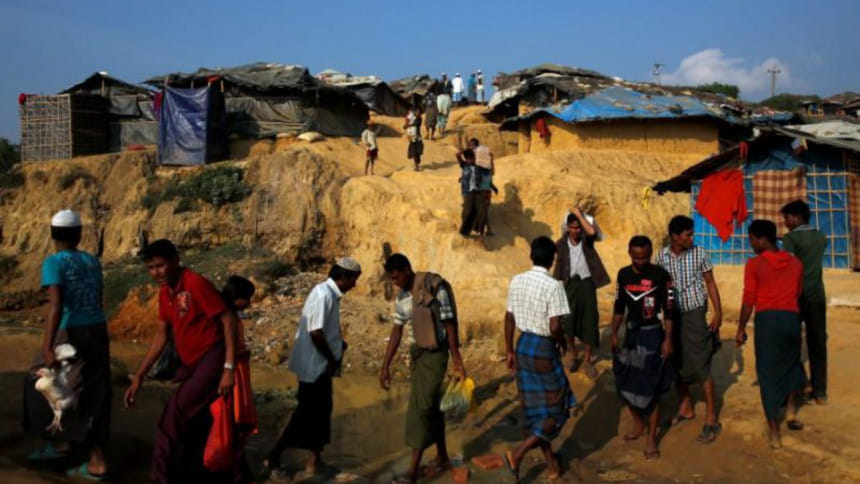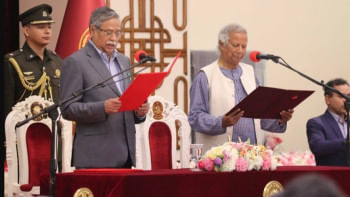Crimes in the Rohingya camps

THE recent discoveries by police of the bullet-hit body of a 35-year-old Rohingya man near Noyapara Rohingya refugee camp in Teknaf and the body of an 18-year-old Rohingya woman recovered from Balukhali refugee camp in Ukhiya are chilling reminders of deteriorating law and order in the Rohingya refugee camps. On Wednesday, two Rohingya men, both allegedly drug traders, were killed in "shootouts" with the police in Cox's Bazar. Lack of security has become a major concern in the densely populated Rohingya camps where refugees are either becoming the victims or the perpetrators.
Last year, according to a report in this daily, 22 Rohingyas were killed in the unregistered camps. There have also been cases of rapes, drug trafficking, robberies and human trafficking. Very recently, four Rohingya women were rescued from being trafficked to Saudi Arabia.
With thousands of young men in these camps who are unemployed, hungry and with an uncertain future ahead, it is not surprising that some of them will resort to crime. Trafficking and drug rings that include Rohingya men have become notoriously active in these camps, adding to the lack of security. And it goes without saying that the most vulnerable groups in these camps are the Rohingya women and girls who fall victim to violence either inside their makeshift homes by their partners or outside by other Rohingya men.
The huge area encompassing the complicated labyrinth of the camps and the constant onslaught of trafficking and drug gangs make it logistically very challenging to provide adequate security. Although there is police presence in these camps along with other officials and their associates, it is not enough to combat the crimes. We urge the authorities to beef up security in these camps to protect the refugees who have fled the worst kind of trauma in their home country. They should not have to live in fear in their place of refuge.

 For all latest news, follow The Daily Star's Google News channel.
For all latest news, follow The Daily Star's Google News channel. 



Comments